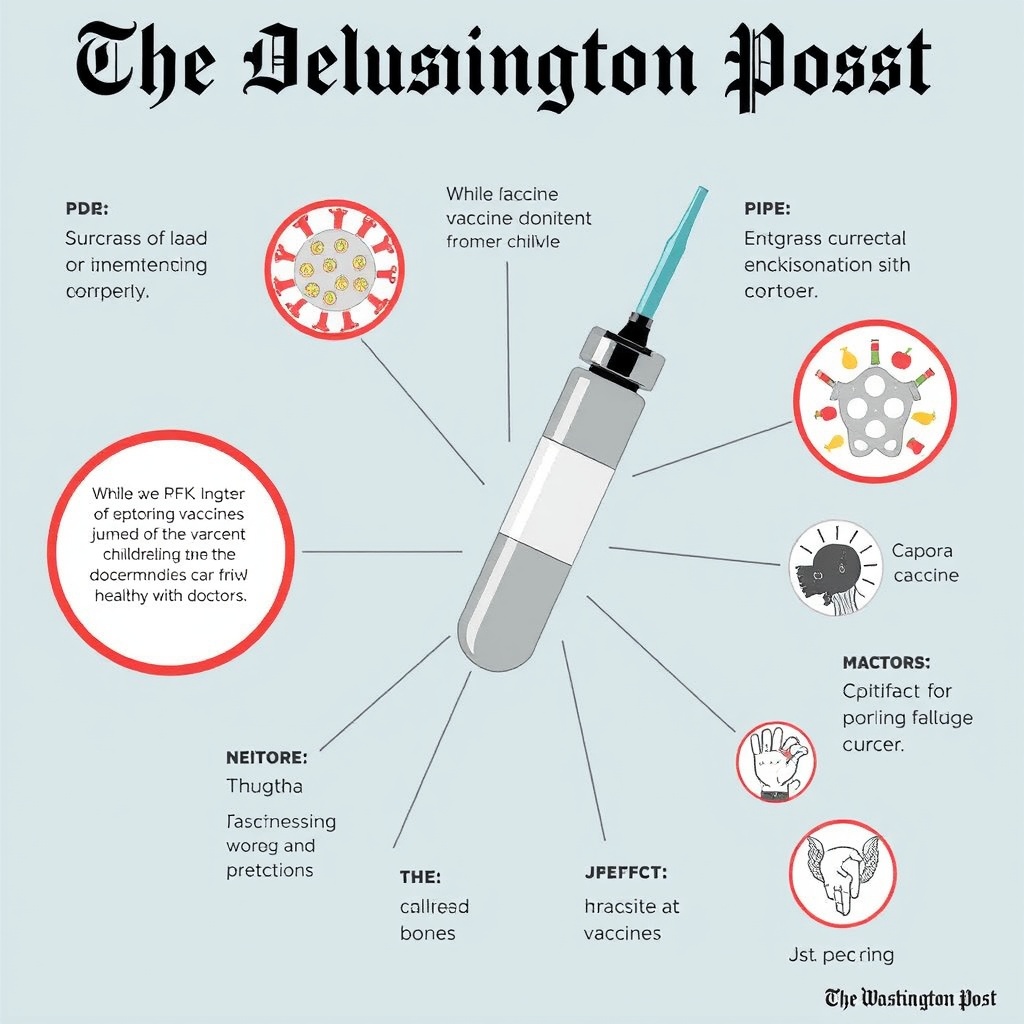Introduction
The COVID-19 pandemic has brought about a plethora of discussions and debates regarding the best course of action to mitigate its spread and protect vulnerable populations, including children. Recently, Robert F. Kennedy Jr. (RFK Jr.) made headlines by stating that the coronavirus vaccine would be removed from the Centers for Disease Control and Prevention (CDC) schedule for healthy children. However, the CDC has contradicted this claim, reaffirming its recommendation for the COVID-19 vaccine to be administered to children, including those who are healthy, in consultation with their doctors. This article aims to delve into the nuances of this controversy, exploring the CDC's stance, the benefits and risks associated with vaccinating children against COVID-19, and the importance of adhering to scientific consensus in public health policy.
The CDC's Stance on COVID-19 Vaccination for Children
The CDC has consistently emphasized the importance of vaccination as a critical tool in preventing the spread of COVID-19 and protecting individuals, especially those who are at higher risk of severe disease, such as the elderly, young children, and people with certain underlying health conditions. The recommendation for children to receive the COVID-19 vaccine is based on a thorough review of scientific evidence, including clinical trials and real-world data, which demonstrate the vaccine's safety and efficacy in this age group.
According to the CDC, children aged 6 months and older are eligible to receive a COVID-19 vaccine. The specific vaccine product and dosage may vary depending on the child's age, with different formulations approved for different age groups. For instance, the Pfizer-BioNTech COVID-19 Vaccine is approved for children as young as 6 months old, while the Moderna COVID-19 Vaccine is approved for children aged 6 months to 5 years.
The CDC's recommendation for COVID-19 vaccination in children is not limited to those with underlying health conditions. Even healthy children are advised to get vaccinated, as they can still contract and spread the virus, potentially leading to severe outcomes, including hospitalization and death, albeit at a lower rate than in adults. Furthermore, vaccination helps prevent the spread of COVID-19 in communities, which is crucial for protecting vulnerable populations, such as older adults and those with compromised immune systems.
Benefits of COVID-19 Vaccination in Children
Vaccinating children against COVID-19 offers several benefits, both at the individual and community levels. Some of the key advantages include:
- Protection against severe disease: COVID-19 vaccination has been shown to significantly reduce the risk of severe illness, hospitalization, and death in children. While children are generally less likely to experience severe COVID-19 than adults, vaccination provides an additional layer of protection against these outcomes.
- Prevention of long-term complications: Emerging evidence suggests that COVID-19 can lead to long-term health complications in some individuals, including children. Vaccination may help mitigate the risk of these complications, which can include conditions such as multisystem inflammatory syndrome in children (MIS-C) and post-acute COVID-19 syndrome (PACS).
- Reduction in transmission: Vaccinated children are less likely to spread the virus to others, which is critical for controlling the spread of COVID-19 in communities and protecting vulnerable populations.
- Support for in-person learning: By reducing the risk of COVID-19 outbreaks in schools, vaccination helps support in-person learning and minimizes the need for school closures, which can have negative impacts on children's educational and social development.
Addressing Concerns and Misinformation
Despite the overwhelming scientific evidence supporting the safety and efficacy of COVID-19 vaccines in children, some concerns and misconceptions persist. RFK Jr.'s statement about the removal of the COVID-19 vaccine from the CDC schedule for healthy children is a prime example of misinformation that can cause confusion and undermine public trust in vaccination.
It is essential to address these concerns with accurate and evidence-based information. The CDC and other reputable health organizations have thoroughly investigated the safety of COVID-19 vaccines in children, and the data consistently show that the benefits of vaccination outweigh the risks.
Some common concerns and misconceptions about COVID-19 vaccination in children include:
- Myth: COVID-19 vaccines are not safe for children. Reality: COVID-19 vaccines have undergone rigorous testing and have been proven to be safe and effective in children.
- Myth: COVID-19 vaccines can cause serious side effects in children. Reality: While COVID-19 vaccines can cause side effects, such as pain, redness, and swelling at the injection site, these are typically mild and short-lived. Serious side effects are extremely rare.
- Myth: Children do not need to be vaccinated against COVID-19 because they are not at high risk of severe disease. Reality: While children are generally less likely to experience severe COVID-19 than adults, vaccination provides an additional layer of protection against severe illness, hospitalization, and death, and helps prevent the spread of the virus in communities.
Conclusion
In conclusion, the CDC's recommendation for COVID-19 vaccination in children, including those who are healthy, is based on a thorough review of scientific evidence and is aimed at protecting both individual children and the broader community. While concerns and misconceptions about COVID-19 vaccination in children persist, it is essential to address these with accurate and evidence-based information.
As we move forward in the pandemic, it is crucial that public health policy is guided by scientific consensus and that we prioritize the protection of vulnerable populations, including children. By promoting COVID-19 vaccination and addressing misinformation, we can work towards a future where the risks associated with COVID-19 are minimized, and communities can thrive.
Ultimately, the decision to vaccinate children against COVID-19 should be made in consultation with a healthcare provider, taking into account individual circumstances and the latest scientific evidence. By working together and prioritizing evidence-based public health policy, we can build a safer and healthier future for all.


Leave a comment